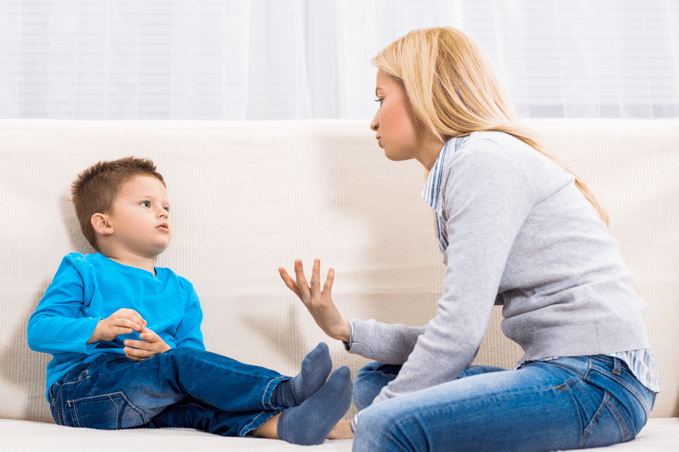
Community

Why letting off steam about SA is bad for your kids
Have you ever considered the effects of your words on little ears?
Children, big and small, have been severely impacted by a continuous daily diet of doom and gloom and negative news. They are a generation born with the spectre of unprecedented crime levels and omnipresent poverty-stricken images on street corners and television sets. They are being raised during an economic recession amidst unacceptable corruption, inept leaders, and political upheaval, despicable looting, and despair.
This doesn’t include the main trauma of their lives right now – a devastating pandemic which has upended all of our worlds. They are seeing the people they love literally dying or making aliyah; and some parents are openly insisting that somewhere over the rainbow, the grass will be greener.
It’s been tough. Do we make it rougher for them to navigate this never-ending patch of fear and FOMO (fear of missing out) by the very words we utter in front of them?
Experts in the field of child psychology say we do. All of these environmental factors have, no doubt, led to an increase in anxiety among our young people, and what we say in front of them adds fuel to the fire.
Johannesburg child psychotherapist, Sheryl Cohen, has noticed what she terms “an interesting shift” in how children relate to the world around them since the start of the pandemic.
“I have noticed that children feel more vulnerable, helpless, afraid, and frustrated than ever before,” she said.
Cohen, who has been practicing for more than two decades, said it would be a mistake to assume that only children are affected in this way, because as adults, we have had the same experience.
“However, as adults, we have more emotional resources to deal with distress. We have more information at our fingertips; we have more comprehension of the facts and less magical thinking about the consequences,” she said. “Children, therefore, depend on us as adults to feel safe and contained.”
Experts agree that the way in which children deal with environmental stressors is strongly dependent on the way their parents or significant others deal with it.
“Children absorb every little thing their parents are saying and not saying,” said social worker Stephanie Urdang, who works with children.
“The walls have ears, and while adults are speaking to their spouses, friends, and families, the children are listening. They also witness body language and feel their parents’ anguish, which has an impact on them,” she said.
“When parents grieve for a lost loved one, children feel the pain, not only because they, too, lost a loved one, but because they are sensitive to the emotions felt and expressed by their parents at home,” said Cohen.
“How do we as parents speak to our children about the world around us? How do we speak to our children about South Africa? About the recent looting, crime, instability? Aliyah in the air? Are we giving our children a feeling of safety and security in the world at large? If we aren’t giving our children a feeling of safety and positivity towards South Africa, how are our children to understand why we live here?” Cohen asks.
These are some of the questions she has grappled with as a therapist working in private practice in our community.
She said children needed to feel safe in the world.
“While there are no guarantees, we need to do what we can to assist them. While we might have electric fences and sophisticated alarms, what do we talk about at the dining room table? Do we undo all the security efforts we put into our sophisticated systems in three seconds by sharing our anger and frustration at the government, the police, and the president?” she asked.
We know not to share the recent robbery up the road with our children, but what’s less obvious is the “style and feeling” we have towards South Africa and the world around us.
“Children pick up on those thoughts and feelings, and it doesn’t serve them well. While it gives us the opportunity to let off some steam, it leaves our children feeling unsafe and unprotected in the world at large at a time in their lives where they need the opposite.
“Feeling frustrated, anxious, upset, and disappointed about life in South Africa has become the norm. But then, in reality, we continue to live here. The discrepancy is a little hard to digest for children. Children don’t do well with hypocrisy. They don’t like a mixed message.”
While she’s aware it’s a complex issue, she said it was important to provide a more balanced perspective.
“This would give them the opportunity to integrate the positive and negative parts of the outside world and live with less stress and a greater sense of stability.”
Urdang agrees that balance is crucial.
“Yes, times are challenging and there are problems, but we need to balance our views. Yes, we were slow to rollout the vaccine, but things are progressing rapidly and we have world-class scientists and doctors that we can be proud of. Yes, the riots and looting were terrible, but we will rise out of the ashes and just look at the astonishing community initiatives that it gave rise to. As parents, we need to emphasise all the positives. While we should in no way diminish anxiety and pain, we need to be mindful and know that we have a lot to be grateful for.”
When it comes to COVID-19, experts say parents should offer children comfort and honesty. Temper scary information and headlines about death with facts and reliable-up-to-date information. Speak in a calm voice, and try to sound reassuring not panicked.
It’s important to give children the space to share their fears, but offer them reassuring information, they say. It’s also important to help children feel in control by doing things like wearing a mask and washing hands often.
Young kids and teenagers worry more about family and friends than themselves. For this reason, parents should encourage their children to FaceTime or voice call their grandparents often.
It’s also important to let them know that it’s normal to feel stressed at times. By recognising and acknowledging these feelings, children get a sense that this too shall pass and life will get back to a new normal. This ultimately helps children build resilience and inner strength.










